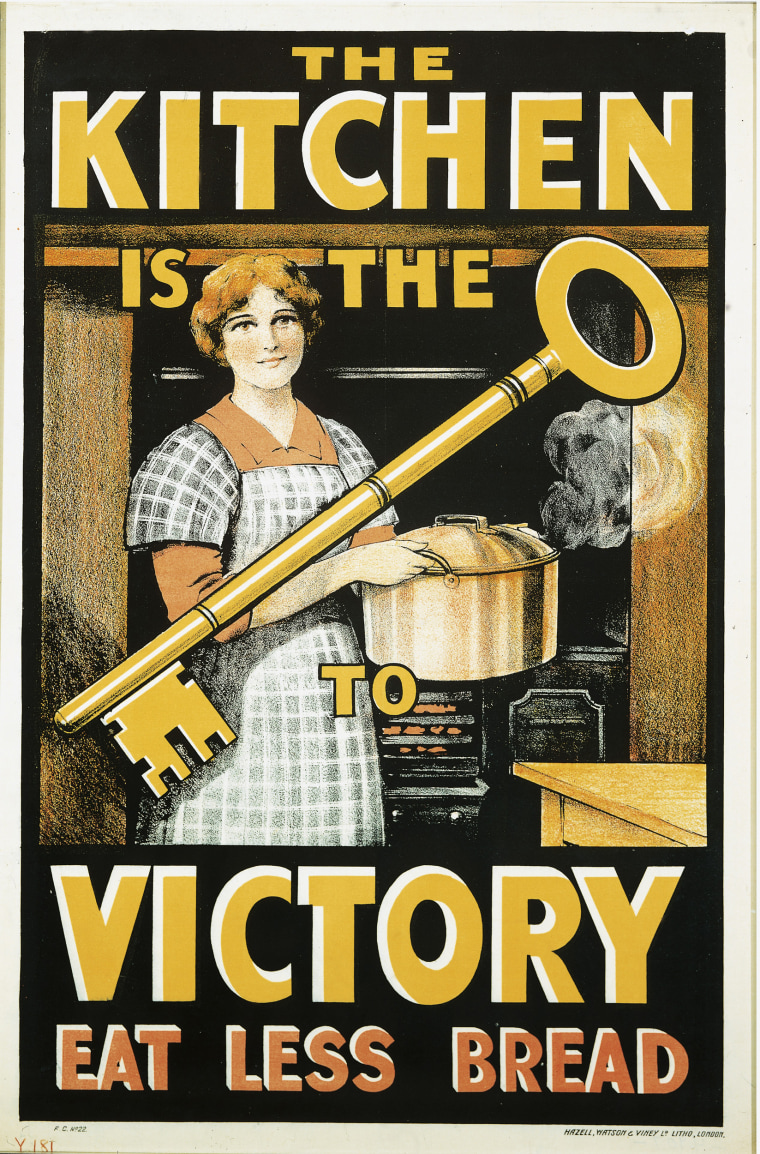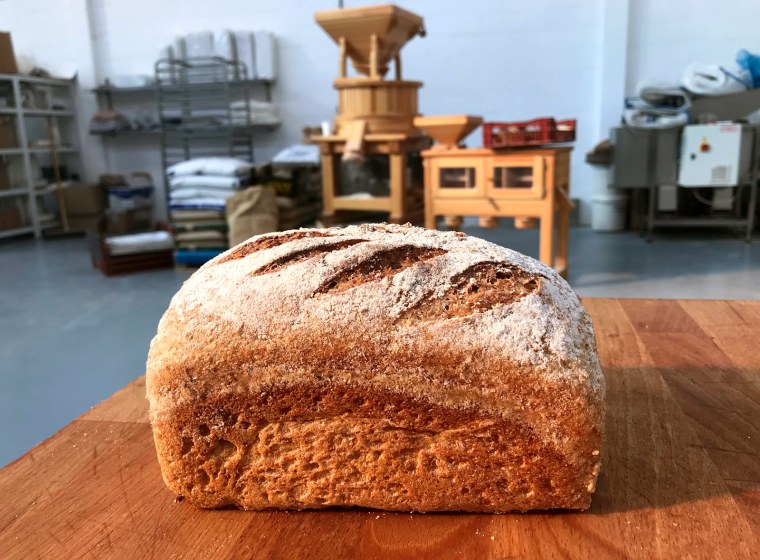GLASGOW — As British politicians invoke memories of World War II’s “Blitz Spirit” during the coronavirus lockdown, and many are quietly channeling the stoic resolve their elders showed in the face of enormous hardship, some in the nation’s baking community are taking a more direct cue from history.
Britain's National Loaf — a nutrient-dense whole wheat bread first produced in 1942 — has been re-emerging in recent weeks.
Today, as was the case back then, a scarcity of ingredients and a concern for public health are challenging the culinary status quo.

After panic-buyers cleared supermarket shelves of flour, smaller-scale producers like Mungoswells Malt and Milling in East Lothian, Scotland, have seen a surge in sales.
“We normally expect three to five enquiries over a weekend. Last Monday morning when we came in, we had 400 orders, actual concrete orders,” baker Angus McDowall told NBC News.
To keep up with the demand, the mill is focusing production on “85 percent extraction” brown flour, like that used in the National Loaf. This is far more efficient to make and allows for a healthier end product, he said.
“It is more nutritious than a white loaf, whether it’s bought from a supermarket, made yourself, or whatever. The more of the bran that you can get into the bread, the better it is for you,” McDowall said.
Health was also a consideration for the wartime ministry of food, where the National Loaf was devised, according to Bryce Evans, a food historian and an associate professor at the Liverpool Hope University in the United Kingdom.
“As we know today, darker bread is better for you. In addition to other nutrients added to the bread, levels of thiamine (Vitamin B1) were higher in the National Loaf,” he said.
Nutritious as it may have been, it was not much loved by British consumers.
Wright Atha, 92, who ate it at the time, does not have fond memories of the “mushy” wartime mainstay.

“It wasn’t very nice. It was a bit grainy, a bit mushy. Most things in the war weren’t very nice, mind you,” he said.
However, another English baker claims that the addition of just salt, water and yeast to the flour can make the loaf “simple and delicious.”
Steven Winter, the owner of Bread Source in the eastern city of Norwich, said he set out to produce a loaf for “people who needed something a little bit more substantial and sustaining than typical additive-filled supermarket bread,” after recognizing the health and social cost of the coronavirus pandemic.
Download the NBC News app for full coverage of the coronavirus outbreak
While free loaves are offered to those made jobless by the virus, others can buy the bread, which his team makes in their free time, for just over a buck. Health and social care staff get added discounts.
“We’ve had excellent feedback across the board,” said Winter, who now wants to see other bakers follow suit. Issuing a call to arms, he has challenged counterparts up and down the country to create their own spin on the National Loaf.
The U.K. has also seen a surging public interest in the growing of fruits and vegetables — a trend immortalized by the government's "Dig for Victory" wartime campaign.
Britain embracing its culinary past would be no bad thing, Evans said.
“If standing in supermarket lines during this crisis prompts people to think more deeply and critically about the inequalities and unhealthiness inherent in our food system, all the better,” he added.
As for Atha, he said he was happy to see the National Loaf make a return — “as long as it’s tastier this time around!”
